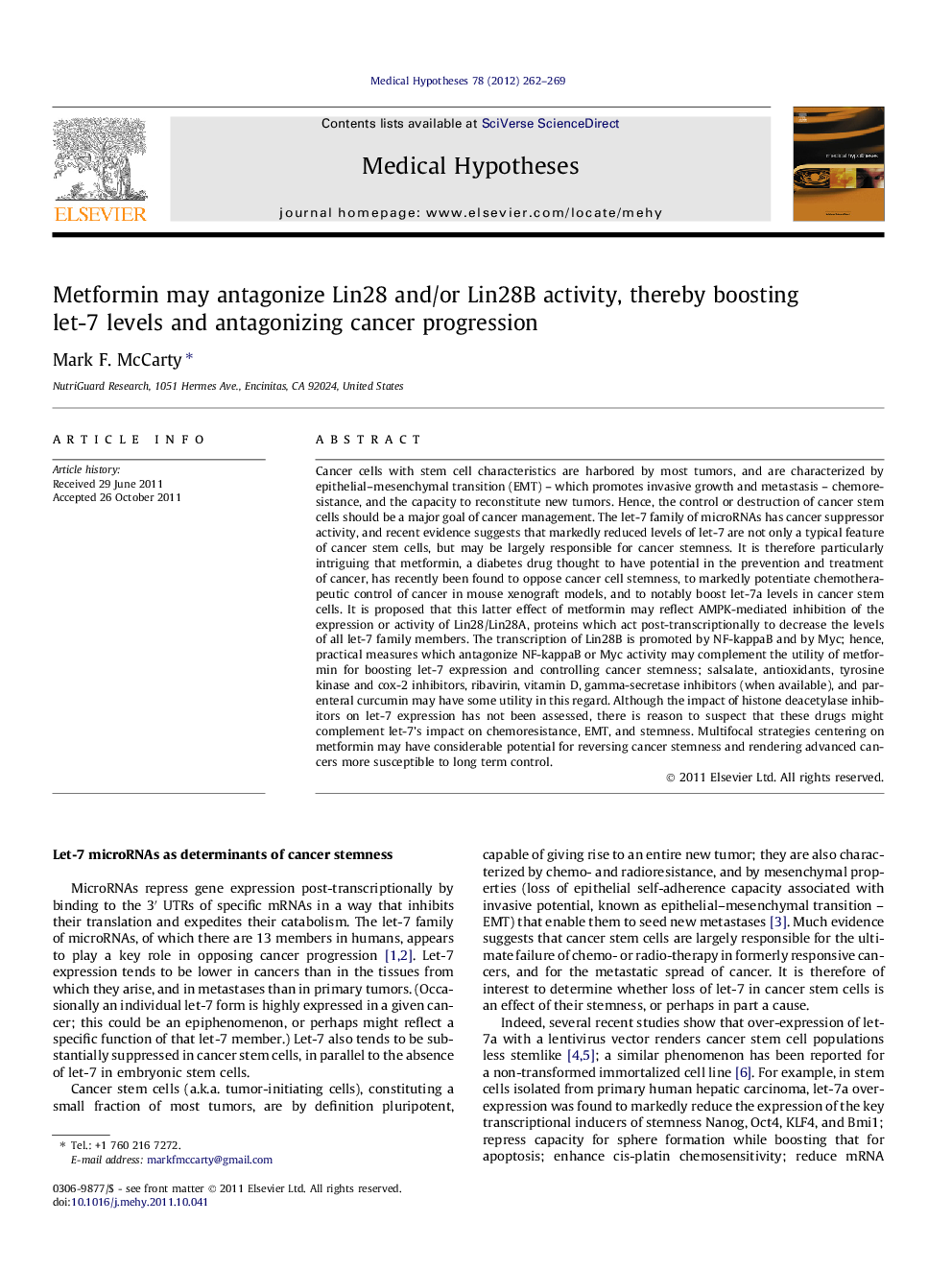| Article ID | Journal | Published Year | Pages | File Type |
|---|---|---|---|---|
| 2489544 | Medical Hypotheses | 2012 | 8 Pages |
Cancer cells with stem cell characteristics are harbored by most tumors, and are characterized by epithelial–mesenchymal transition (EMT) – which promotes invasive growth and metastasis – chemoresistance, and the capacity to reconstitute new tumors. Hence, the control or destruction of cancer stem cells should be a major goal of cancer management. The let-7 family of microRNAs has cancer suppressor activity, and recent evidence suggests that markedly reduced levels of let-7 are not only a typical feature of cancer stem cells, but may be largely responsible for cancer stemness. It is therefore particularly intriguing that metformin, a diabetes drug thought to have potential in the prevention and treatment of cancer, has recently been found to oppose cancer cell stemness, to markedly potentiate chemotherapeutic control of cancer in mouse xenograft models, and to notably boost let-7a levels in cancer stem cells. It is proposed that this latter effect of metformin may reflect AMPK-mediated inhibition of the expression or activity of Lin28/Lin28A, proteins which act post-transcriptionally to decrease the levels of all let-7 family members. The transcription of Lin28B is promoted by NF-kappaB and by Myc; hence, practical measures which antagonize NF-kappaB or Myc activity may complement the utility of metformin for boosting let-7 expression and controlling cancer stemness; salsalate, antioxidants, tyrosine kinase and cox-2 inhibitors, ribavirin, vitamin D, gamma-secretase inhibitors (when available), and parenteral curcumin may have some utility in this regard. Although the impact of histone deacetylase inhibitors on let-7 expression has not been assessed, there is reason to suspect that these drugs might complement let-7’s impact on chemoresistance, EMT, and stemness. Multifocal strategies centering on metformin may have considerable potential for reversing cancer stemness and rendering advanced cancers more susceptible to long term control.
